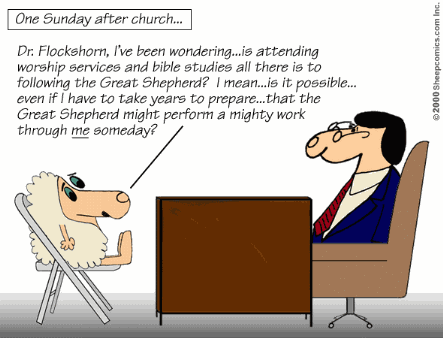
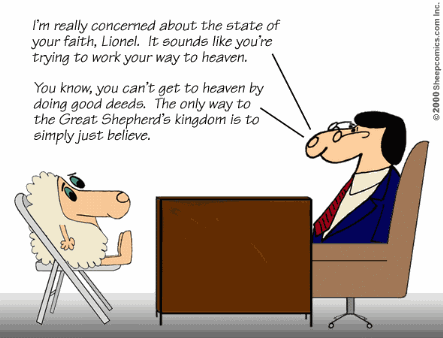
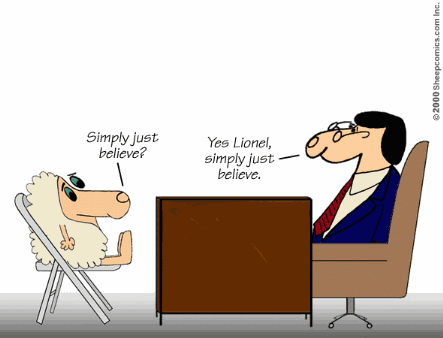
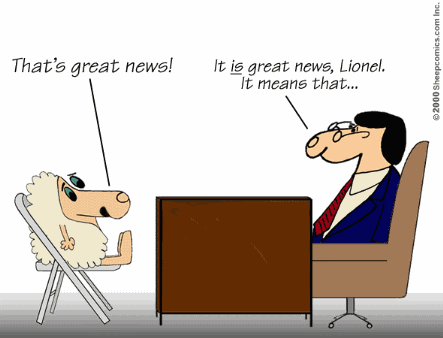
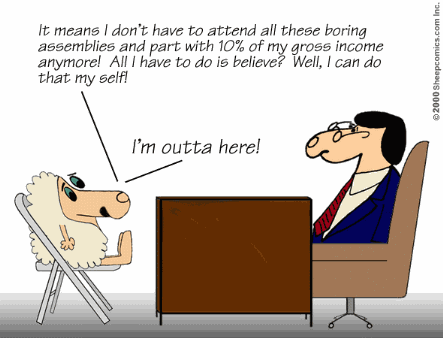
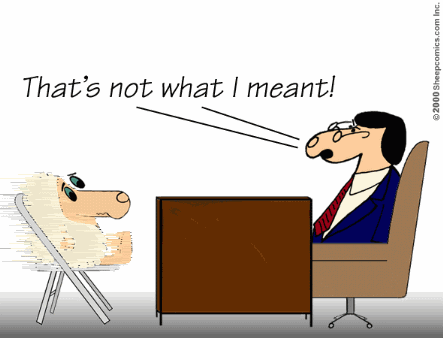
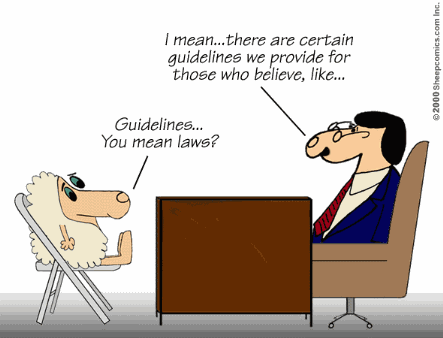
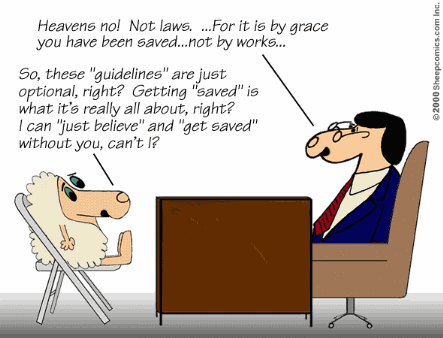
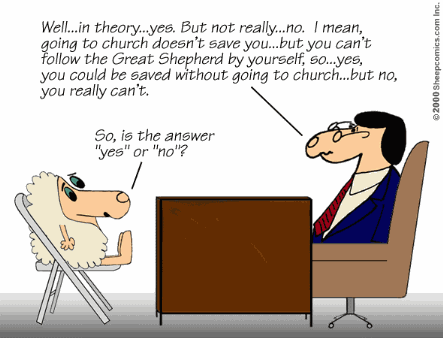
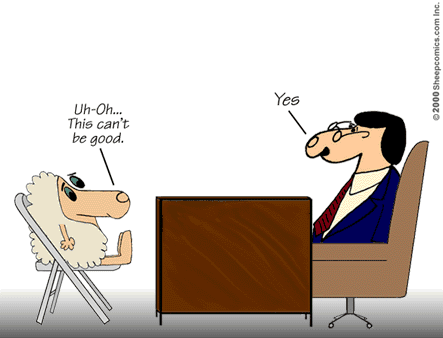
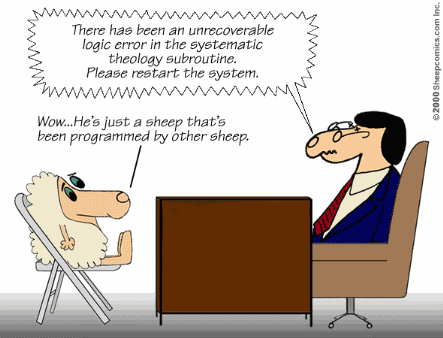
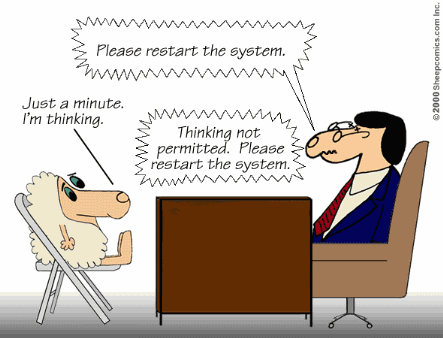
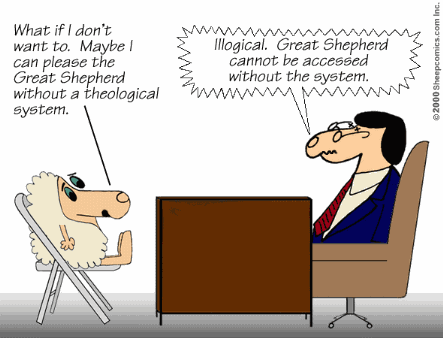
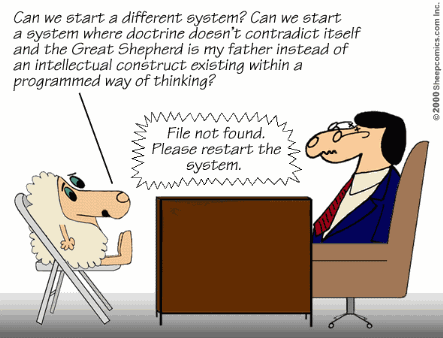
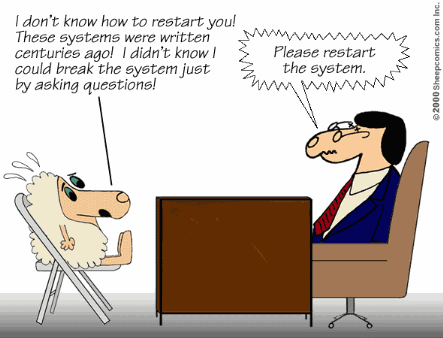
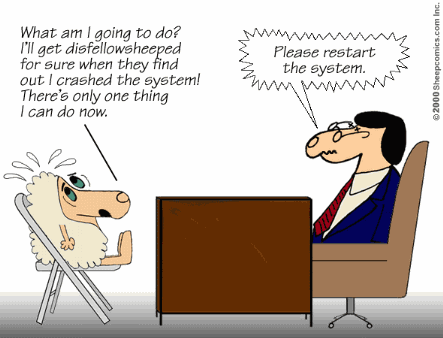
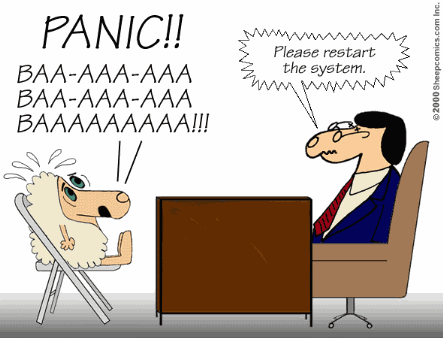

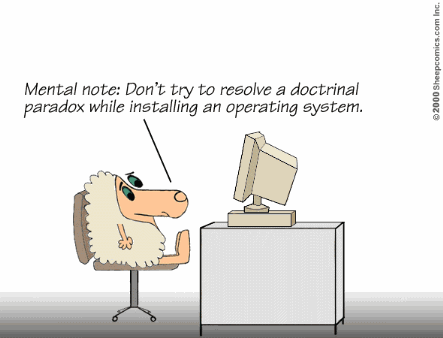
Editorial Notes
This strip was inspired by a book that is very well known among those who study the history of religion in the United States. The book I am referring to is "The Christian System" by Alexander Campbell. It was written in the 19th century, and might be considered a "source document" for a reformation (or "restoration") movement which several of todayís major American denominations trace their history to.
(If you want to read this book, just search for it using "Yahoo" or some other search engine. There are several sites on the Net where you can download it for free. Here is one of them.)
It actually wasnít the content of the book that inspired me. (This isnít a book review.) It was the title: "The Christian System". Iím sure Mr. Campbell meant well when he wrote this book and chose this title. He probably didnít think someone would spend more time pondering the title of his book than its contents.
But thatís what I did. I thought long and hard on the title: "The Christian System". This title expresses exactly what drove me crazy enough to begin drawing cartoon sheep.
In every church I have ever been to, Christianity has been "systematized". Every church has itís own theological system: a set of assumptions to guide one in understanding what the Bible says, a set of inferences to fill the gaps in understanding, and a set of rules based on the assumptions and inferences. You might call this its theological "operating system".
Today, we have thousands of churches, each with itís own operating system (quite unlike the world of consumer computing.) A few centuries ago, the "reformation" broke the monopoly power of the Pope over general Christendom. Now we have a multitude of little "popes" competing with each other, each with a little church empire to control, each "always right" in their own eyes. Each unwilling or unable to change. When I visit a church for the first time, I try to establish who the "pope" is and what "operating system" the church is running.
What has caused me to become so disillusioned with corporate churches is that I am very good at "crashing" systems. I start asking myself questions. "Where did they get that idea?" "Where is this in the Bible?" Sooner or later, the church "operating system" suffers an intellectual "system error", and the logic behind the church system comes crashing down around me.
In the world of computers, if one suffers a "system error" there are four courses of action available. First, you can fix the system. Second, you can work around the part that doesnít work. Third, you can replace the entire system with a new one. Finally, you can decide to stop using computers.
In the world of "church" you typically arenít allowed to "fix the system". The systems are all in place and many have been churning away for centuries. Sometimes, the CEO/Preacher is the system, whatever he says goes. At other churches, the system is run by a "council" way far away; the local minister is just a "node" in the network. But whether the preacher is the system or just part of the system, you can bet that youíre not going to change the system. This leaves us with three more choices.
Choice number one is to "work around" the parts of the system that donít work. Many church goers do this. Just rationalize the "system bugs" in the name of tradition or simply ignore them and go along with the routine. Life is easier that way.
Choice two is to get "radical" and go start your own system. This is a lot of work, and itís getting harder and harder to be original.
Choice three is to stop "doing church". After all, any modern mainstream evangelical will tell you that you canít "get saved" by "going to church". This must mean that "going to church" is optional once I "get saved". If "going to church" doesnít get me saved, it certainly doesnít keep me saved. I can go live my own self-centered life just as long as I believe the right stuff about Jesus and I am "nice" to people.
Some people get stuck between choice one and choice three. The "do church" until they get bored with the repetition and disillusioned by the "bugs" in the system. Then they stop going to church only to return a few weeks later out of guilt. After a few more weeks, the guilt goes away and the boredom builds up, and the cycle is set to repeat itself. I cal this the "infinite boredom/guilt loop".
Now, I am certainly not blaming all this on Alexander Campbell. He lived in a different time, and his goal was to restore Christian unity. Itís just this "system" idea I have trouble with. Using the word "system" to describe Christianity seems to take something away from it.
Hereís what I mean. I could make a convincing argument that my family (my wife and I) are a "system". After all, most systems are made up of smaller sub-systems. We have a "shelter system" consisting of a house with its water, heating and electrical systems. We have a "transportation system" consisting of two cars. We have a "food system" consisting of a refrigerator, oven, sink, dishwasher, and garbage disposal. We also have a "financial system". That one hurts to think about, so I wonít go there.
Imagine if I kept a journal of our day-to-day life and it went into space with the next deep space probe. Now imagine that the probe was intercepted by an intelligent but very different species. They might read about the subsystems in our life and try to figure out what the overall system was about. They might call it the "male and female biped living together system". If they thought they could "get saved" by recreating this system, they might build a house like ours, recreate the cars and appliances, and then go through the motions of using them.
But our imaginary aliens will have missed the point. My wife and I are a family, and we committed to living together because we love each other. The systems we build and use donít communicate that very well, and they donít exist as ends in themselves. They serve a greater purpose: a maturing relationship. Further, this relationship has the ability to produce offspring and mature them into adults.
Calling Christianity a "system" misses the main point of Christianity. To me, the "family" metaphor works a lot better. Iíll give it a try below. (The scriptures I reference are not an attempt to "prooftext". They are just examples of where these ideas are found.)
God created the world. (Acts 17:24)
God loves the world. (John 3:16)
God gives us life and breath. (Acts 17:25)
God wants us to seek Him, and He is not far from us. (Acts 17:27)
God, through Jesus, has given us the right to become His child. (John 1:12)
When someone obeys the Gospel, God adopts that person as His child. (Rom 8:15, Gal 4:6)
God wants His children to mature. (Hebrews 5:11 Ė 6:1)
God has an inheritance for his children. (1 Peter 1:3-4)
This sounds a lot more like a process than a system, and itís a process that occurs within a family. A process is not like a system. A system is typically created to accomplish tasks that need to be done repeatedly. The way to improve a system is to make it do its task faster or with fewer resources.
A process transforms something. Transformation can be inefficient, difficult, and even painful. Since we are all different, the process of maturing in Godís family is going to be different for each one of us. Itís hard to systematize or institutionalize.
I have often wondered why there are so many different church systems out there, and I have been frustrated by the ease with which I can find their "system errors". Why are there so many systems out there with "errors" built into them? Perhaps the "system error" is the system mentality itself. The root error that leads to the system errors is in thinking we can build a system, any system, to manage our relationship with God.
God created a multitude of systems, but God is not a system. God did not create a system for us but rather a family. We can choose to be adopted into this family. Once adopted, we can choose to obey, grow up, and inherit, or we can choose the path of self-centeredness which eventually leads to being disowned by God.
I really wish that book had been entitled "The Christian Family".
Web Shepherd